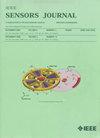多尺度融合对抗域自适应:一种基于轻量级模型的跨域故障诊断方法
IF 4.3
2区 综合性期刊
Q1 ENGINEERING, ELECTRICAL & ELECTRONIC
引用次数: 0
摘要
近年来,深度学习在跨域故障诊断方面取得了重大进展。目前,大多数现有模型仍然依赖于大规模标记数据和复杂的架构,限制了它们在工业应用中的实际部署。为了克服这些限制,本研究旨在开发一种能够有效减轻跨域特征分布差异影响的轻量级方法,从而提高模型在复杂工况下的泛化和适用性。首先,提出一种多尺度融合对抗域自适应(MFADA)方法。该方法通过集成源域和目标域的局部结构特征和高级语义信息,改善了域间特征对齐。其次,结合点向卷积(PW)、深度卷积(DW)和最大池化(MaxPool)设计了一个轻量级的特征提取模块。该结构以最小的参数实现了较强的特征提取能力,显著提高了计算效率。利用工业机器人的电流信号和轴承在各种复杂工况下的振动信号对该方法进行了验证。实验结果表明,MFADA在多传输任务上取得了优异的性能。该模型的诊断准确率最高可达99.17%,同时保持了紧凑的模型尺寸和较低的计算成本,表现出优异的性能。本文章由计算机程序翻译,如有差异,请以英文原文为准。
Multiscale Fusion Adversarial Domain Adaptation: A Cross-Domain Fault Diagnosis Method Based on Lightweight Model
In recent years, deep learning has achieved significant progress in cross-domain fault diagnosis. Currently, most existing models still rely on large-scale labeled data and complex architectures, limiting their practical deployment in industrial applications. To overcome these limitations, this study aims to develop a lightweight method capable of effectively mitigating the impact of cross-domain feature distribution discrepancies, thereby enhancing model generalization and applicability under complex working conditions. First, a multiscale fusion adversarial domain adaptation (MFADA) approach is proposed. It improves interdomain feature alignment by integrating local structural features and high-level semantic information from both the source and target domains. Second, a lightweight feature extraction module is designed by combining pointwise (PW) convolution, depthwise (DW) convolution, and max pooling (MaxPool). This structure achieves strong feature extraction capability with minimal parameters, significantly improving computational efficiency. The proposed method is validated on current signals from industrial robots and vibration signals from bearings under various complex operating conditions. Experimental results demonstrate that MFADA achieves excellent performance on multiple transfer tasks. It reaches a maximum diagnostic accuracy of 99.17%, while maintaining a compact model size and low computational cost, demonstrating excellent performance.
求助全文
通过发布文献求助,成功后即可免费获取论文全文。
去求助
来源期刊

IEEE Sensors Journal
工程技术-工程:电子与电气
CiteScore
7.70
自引率
14.00%
发文量
2058
审稿时长
5.2 months
期刊介绍:
The fields of interest of the IEEE Sensors Journal are the theory, design , fabrication, manufacturing and applications of devices for sensing and transducing physical, chemical and biological phenomena, with emphasis on the electronics and physics aspect of sensors and integrated sensors-actuators. IEEE Sensors Journal deals with the following:
-Sensor Phenomenology, Modelling, and Evaluation
-Sensor Materials, Processing, and Fabrication
-Chemical and Gas Sensors
-Microfluidics and Biosensors
-Optical Sensors
-Physical Sensors: Temperature, Mechanical, Magnetic, and others
-Acoustic and Ultrasonic Sensors
-Sensor Packaging
-Sensor Networks
-Sensor Applications
-Sensor Systems: Signals, Processing, and Interfaces
-Actuators and Sensor Power Systems
-Sensor Signal Processing for high precision and stability (amplification, filtering, linearization, modulation/demodulation) and under harsh conditions (EMC, radiation, humidity, temperature); energy consumption/harvesting
-Sensor Data Processing (soft computing with sensor data, e.g., pattern recognition, machine learning, evolutionary computation; sensor data fusion, processing of wave e.g., electromagnetic and acoustic; and non-wave, e.g., chemical, gravity, particle, thermal, radiative and non-radiative sensor data, detection, estimation and classification based on sensor data)
-Sensors in Industrial Practice
 求助内容:
求助内容: 应助结果提醒方式:
应助结果提醒方式:


